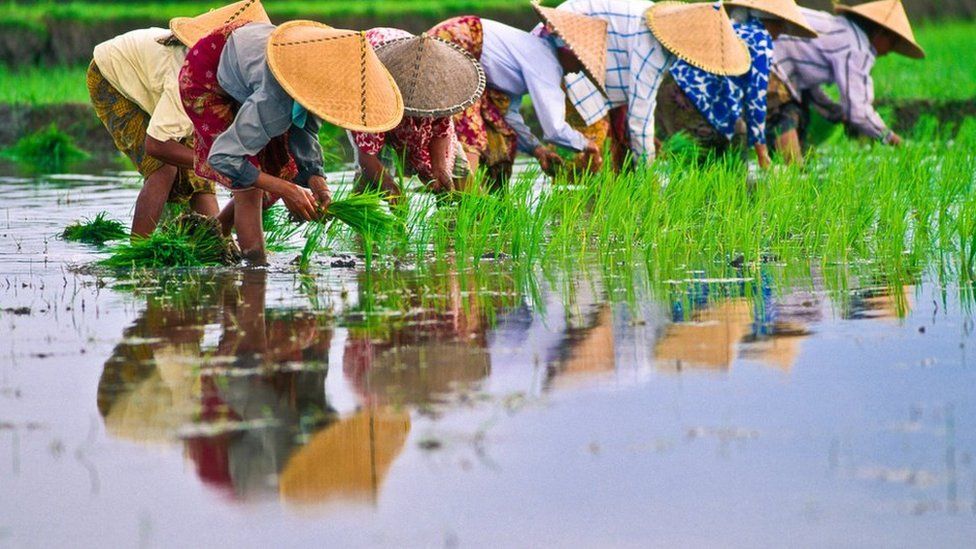ARTICLE AD BOX
 Image source, Getty Images
Image source, Getty Images
Indonesian farmers planting rice
Indonesia's president has ordered the military to help farmers plant rice, as severe drought fuelled by the El Niño weather phenomenon threatens yields.
Joko Widodo told army officers to take advantage of recent rainfall in some provinces and help with the planting effort.
Prolonged drought has reduced output of the staple crop in South East Asia's most populous country.
High prices have increased imports and threatened food security.
Months of dry weather have put cultivation of rice - usually carried out in October - behind schedule in Indonesia. The country's output this year dropped to 30.9 million tonnes from 31.53 million tonnes a year ago.
On Wednesday, during a visit to Pekalongan regency in central Java, President Joko Widodo posted a video on the presidential YouTube channel urging the military to come forward and help farmers with the sowing.
The semi-aquatic rice seedlings need consistent irrigation during the growing season.
"Since rainfall has occurred on some provinces, we want to encourage farmers to start planting rice," said Mr Widodo. Standing next to a newly-planted paddy field, the president added, "It has been delayed due to El Niño, but we want to immediately plant, plant, plant."
El Niño typically causes hotter and drier weather in South East Asia, reducing output in major producing and consuming countries.
An army spokesman, Julius Widjojono, said many rice farms were lacking labour as young people flocked to cities to work in factories for better wages. Therefore even though some farmers have land, they're short of manpower.
Mr Widjojono said his officers could assess the workforce needed for planting, while troops could be deployed from nearby military units.
Driven by El Niño and a recent ban on non-Basmati white rice exports by India, the world's top supplier, global rice prices have risen by as much as 45%, hitting the highest level for 15 years.
Agriculture Minister Amran Sulaiman said the involvement of armed forces in the past had helped Indonesia to achieve food self-sufficiency. He said that their co-operation could help the country reduce rice imports.
Image source, Getty Images
Image caption,Workers preparing rice distribution at a Bulog warehouse
Earlier this month, the agriculture ministry and the Indonesian army signed an agreement that includes military personnel helping in farming and using idle army-owned land for rice plantation, with seedlings and machinery supplied by the ministry.
The state procurement company, Bulog, was assigned this year to import 3.5 million tonnes of rice - making Indonesia one of the top rice importers.

 1 year ago
33
1 year ago
33








 English (US) ·
English (US) ·